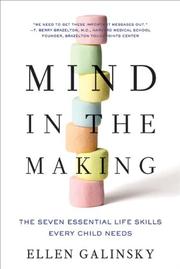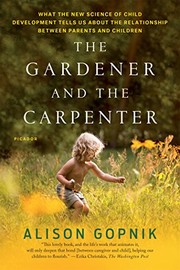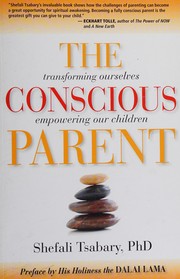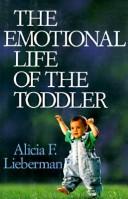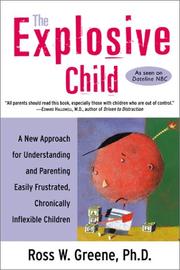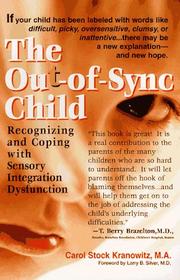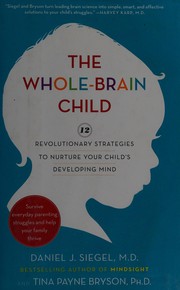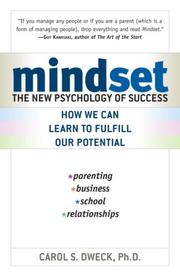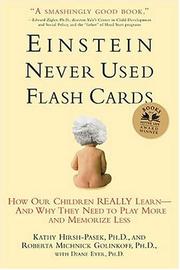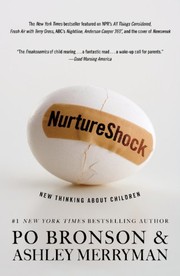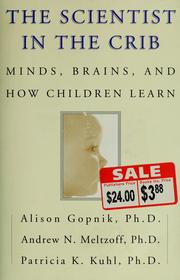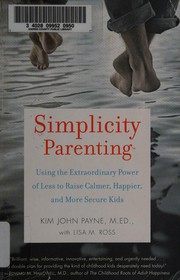Are you searching for the perfect book on child development to help you navigate the fascinating world of parenting? Look no further! We’ve compiled a list of the 20 best child development books that will provide you with invaluable insights and guidance on understanding and nurturing your child’s growth. Whether you’re a new parent, educator, or simply interested in the topic, these books offer a wealth of knowledge on child psychology, behavior, and milestones. From renowned experts to timeless classics, this curated selection covers all aspects of child development, making it a must-read for anyone passionate about understanding and supporting children’s growth.
Contents
- 1 20 Best Child Development Books
- 2 Mind in the Making
- 3 The Gardener and the Carpenter
- 4 The Importance of Being Little
- 5 The Montessori Toddler
- 6 The Conscious Parent
- 7 The Emotional Life of the Toddler
- 8 The Explosive Child
- 9 The Out-of-Sync Child
- 10 The Whole-Brain Child
- 11 Mindset: The New Psychology of Success
- 12 Einstein Never Used Flashcards: How Our Children Really Learn — and Why They Need to Play More and Memorize Less
- 13 NurtureShock: New Thinking About Children
- 14 The Scientist in the Crib: Minds, Brains, and How Children Learn
- 15 The Gardener and the Carpenter: What the New Science of Child Development Tells Us About the Relationship Between Parents and Children
- 16 Brain Rules for Baby: How to Raise a Smart and Happy Child from Zero to Five
- 17 Parenting from the Inside Out: How a Deeper Self-Understanding Can Help You Raise Children Who Thrive
- 18 Simplicity Parenting: Using the Extraordinary Power of Less to Raise Calmer, Happier, and More Secure Kids
- 19 The Whole-Brain Child
- 20 The Yes Brain
- 21 The Whole-Brain Child Workbook
- 22 Final Thoughts on Best Child Development Books
- 23
20 Best Child Development Books
Mind in the Making
by Ellen Galinsky
Mind in the Making, written by Ellen Galinsky, is a fascinating book on child development that delves into the crucial skills children need to succeed in life. Galinsky draws on extensive research to highlight seven essential life skills that are often overlooked in traditional education. These skills include focus and self-control, perspective taking, communicating, making connections, critical thinking, taking on challenges, and self-directed, engaged learning. Through real-life examples and practical advice, Galinsky shows parents, educators, and caregivers how to foster these skills in children from a young age. The book about child development is both insightful and engaging, offering a fresh perspective on what it takes to raise successful, well-rounded individuals. Whether you’re a parent looking to support your child’s development or an educator seeking to enhance your teaching methods, Mind in the Making is a must-read for anyone interested in child development.
The Gardener and the Carpenter
by Alison Gopnik
The Gardener and the Carpenter by Alison Gopnik is a thought-provoking book about child development that challenges traditional parenting and educational approaches. Gopnik, a renowned developmental psychologist, argues that the prevailing “carpenter” mindset of shaping and molding children into a particular outcome is flawed. Instead, she advocates for a “gardener” approach, where adults provide a rich, nurturing environment for children to explore and grow naturally.
Through engaging anecdotes and scientific research, Gopnik highlights the importance of allowing children to play, imagine, and learn through trial and error. She emphasizes the significance of forming strong emotional bonds with children and creating a supportive environment that encourages curiosity and experimentation. The book delves into the complexities of child development, offering valuable insights for parents, educators, and anyone interested in understanding the true nature of childhood.
Overall, The Gardener and the Carpenter offers a refreshing perspective on raising and educating children, challenging readers to rethink their approach to nurturing the next generation.
The Importance of Being Little
by Erika Christakis
The Importance of Being Little, a book on child development, written by Erika Christakis, delves into the crucial role of early childhood education and the impact it has on a child’s development. Christakis emphasizes the importance of fostering a nurturing and stimulating environment for young children, rather than pushing them towards academic rigor and structured learning. She advocates for a more holistic approach to education, focusing on play, social interaction, and emotional growth, as essential components of a child’s development.
Christakis challenges the current educational system and societal norms, urging parents and educators to reconsider their approach to early childhood education. Through compelling research and real-life examples, she highlights the significance of creating a supportive and engaging environment for young children, acknowledging their natural curiosity and need for exploration. The Importance of Being Little is a thought-provoking and insightful book about child development that encourages readers to reevaluate their perspectives on early education and child-rearing.
The Montessori Toddler
by Simone Davies
The Montessori Toddler by Simone Davies is a wonderful resource for parents and caregivers who are interested in fostering independence and learning in their young children. This book provides a wealth of practical and insightful advice on how to implement Montessori principles at home, creating an environment that supports the natural development of toddlers.
Davies draws on her extensive experience as a Montessori teacher to offer guidance on creating a prepared environment, encouraging independence, and fostering a love of learning in toddlers. The book is filled with practical tips and activities that can be easily incorporated into daily routines, making it accessible and manageable for parents and caregivers.
With its focus on promoting independence, self-confidence, and a love of learning, The Montessori Toddler is a valuable resource for anyone interested in promoting healthy child development. Davies’ insights and practical advice make this book an indispensable tool for parents and caregivers who are looking for ways to support their toddler’s growth and development.
The Conscious Parent
by Dr. Shefali Tsabary
The Conscious Parent by Dr. Shefali Tsabary is a groundbreaking book about child development that challenges traditional parenting methods. Dr. Tsabary encourages parents to look within themselves and cultivate a deeper sense of self-awareness in order to better connect with their children. She emphasizes the importance of conscious communication, empathy, and understanding in the parent-child relationship, and provides practical guidance on how to achieve this.
This book offers a refreshing perspective on parenting, urging adults to release their own emotional baggage and societal expectations in order to truly see and understand their children. Dr. Tsabary’s insights are based on the principles of mindfulness and personal growth, making this a valuable resource for parents who are seeking a more conscious and compassionate approach to raising their children.
The Conscious Parent is a must-read for anyone interested in exploring a more mindful and empathetic approach to parenting, and it has the potential to transform the way we think about raising children.
The Emotional Life of the Toddler
by Alicia F. Lieberman
The Emotional Life of the Toddler by Alicia F. Lieberman is a fascinating book on child development that delves into the complex world of toddlers’ emotions. Lieberman, a renowned psychoanalyst, provides a comprehensive overview of the emotional and psychological growth of toddlers, offering insights into their temperaments, attachment, and social development.
The book about child development explores the challenges and triumphs that toddlers experience as they navigate their newfound independence and assert their autonomy. Lieberman’s expertise in the field shines through as she offers practical advice for parents and caregivers on how to support and foster healthy emotional development in toddlers.
Through a blend of research, clinical experience, and real-life anecdotes, The Emotional Life of the Toddler provides a deeper understanding of the emotional world of toddlers and offers valuable guidance for anyone involved in the care and nurturing of young children. This child development book is an essential read for anyone seeking to better comprehend and support the emotional growth of toddlers.
The Explosive Child
by Ross W. Greene
The Explosive Child by Ross W. Greene is a groundbreaking book on child development that offers a compassionate and effective approach to understanding and managing challenging behavior in children. Dr. Greene, a renowned child psychologist, introduces the Collaborative and Proactive Solutions (CPS) model, which focuses on identifying and solving the underlying problems that lead to explosive outbursts and meltdowns in children.
Through real-life examples and practical strategies, Greene provides parents, educators, and mental health professionals with a new perspective on addressing behavior issues in children with empathy and respect. The book emphasizes the importance of fostering a collaborative relationship with children and involving them in the problem-solving process. This approach promotes lasting solutions and helps children develop crucial skills in self-regulation and communication.
With its insightful and compassionate guidance, The Explosive Child is a must-read for anyone seeking a fresh and effective approach to understanding and supporting children with challenging behavior.
The Out-of-Sync Child
by Carol Kranowitz
The Out-of-Sync Child by Carol Kranowitz is a groundbreaking book on child development that delves into the world of sensory processing disorder and its impact on children. Kranowitz provides a comprehensive overview of the different sensory systems and how they can affect a child’s behavior, learning, and overall development. Through relatable real-life stories and practical advice, the author offers valuable insights into recognizing and addressing sensory processing issues in children.
This book about child development is a valuable resource for parents, teachers, and professionals working with children who may struggle with sensory processing challenges. Kranowitz’s compassionate and informative approach makes this book a must-read for anyone seeking a deeper understanding of how sensory issues can impact a child’s daily life and how to support them effectively. Whether you’re a parent looking for answers or a professional seeking to expand your knowledge in child development, The Out-of-Sync Child is an essential addition to your library.
The Whole-Brain Child
by Daniel J. Siegel, Tina Payne Bryson
The Whole-Brain Child is a revolutionary book on child development that offers insights into the complex workings of a child’s brain. Written by renowned authors Daniel J. Siegel and Tina Payne Bryson, this book presents practical strategies for nurturing a child’s emotional intelligence and promoting healthy brain development.
Through engaging stories and easy-to-follow explanations, the authors delve into the science of brain development and provide valuable tools for parents and caregivers to help children thrive. The book emphasizes the importance of integrating both the emotional and logical sides of the brain to support a child’s overall well-being.
Readers will discover how to foster a deeper connection with their children, manage difficult emotions, and navigate challenging situations with empathy and understanding. The Whole-Brain Child is a must-read for anyone seeking a deeper understanding of child development and practical techniques for raising resilient, emotionally intelligent children.
Mindset: The New Psychology of Success
by Carol S. Dweck
Mindset: The New Psychology of Success by Carol S. Dweck is a transformative book about the power of mindset in achieving success. Dweck, a renowned psychologist, introduces the concept of ‘fixed’ and ‘growth’ mindsets, and explains how our beliefs about our abilities can greatly impact our potential for success. Through engaging anecdotes and scientific research, she demonstrates how individuals with a fixed mindset believe their talents and abilities are innate and unchangeable, while those with a growth mindset believe that their abilities can be developed through dedication and hard work.
This book on child development is not just about achieving success in the traditional sense, but also about fostering a lifelong love for learning and resilience in the face of challenges. Dweck’s insights are invaluable for parents, educators, and anyone seeking to cultivate a growth mindset in themselves or others. With practical strategies and inspiring stories, Mindset is a must-read for anyone interested in personal growth and development.
Einstein Never Used Flashcards: How Our Children Really Learn — and Why They Need to Play More and Memorize Less
by Kathy Hirsh-Pasek, Roberta Michnick Golinkoff, Diane Eyer
Einstein Never Used Flashcards is a groundbreaking book on child development that challenges traditional ideas about how children learn and develop. Written by Kathy Hirsh-Pasek, Roberta Michnick Golinkoff, and Diane Eyer, this insightful book explores the importance of play and hands-on experiences in a child’s learning journey. The authors argue that children need to play more and memorize less in order to truly thrive and develop essential skills.
The book draws on extensive research in child development and psychology to make a compelling case for a more balanced approach to early childhood education. It emphasizes the value of hands-on exploration, social interaction, and creative expression in nurturing a child’s cognitive and emotional growth. Through engaging anecdotes and practical advice, Einstein Never Used Flashcards offers parents, educators, and caregivers a wealth of valuable insights into how children really learn and why play is crucial for their development. This book about child development is a must-read for anyone interested in understanding and supporting the holistic growth of young minds.
NurtureShock: New Thinking About Children
by Po Bronson, Ashley Merryman
NurtureShock: New Thinking About Children by Po Bronson and Ashley Merryman is a groundbreaking book on child development that challenges conventional wisdom and offers a fresh perspective on how to raise children. The authors delve into various aspects of parenting, from the impact of praise on children’s self-esteem to the role of sleep in cognitive development. Through engaging storytelling and in-depth research, they uncover the surprising truths about what really shapes a child’s development.
This thought-provoking book about child development provides valuable insights for parents, educators, and anyone interested in understanding the complex dynamics of raising children. By debunking common myths and presenting evidence-based strategies, NurtureShock offers practical advice on how to nurture children’s emotional, social, and intellectual growth. The authors’ approach is refreshing and informative, making this child development book a must-read for anyone seeking a deeper understanding of the factors that influence a child’s development.
The Scientist in the Crib: Minds, Brains, and How Children Learn
by Alison Gopnik, Andrew N. Meltzoff, Patricia K. Kuhl
The Scientist in the Crib: Minds, Brains, and How Children Learn is a fascinating book on child development that delves into the intricate workings of a child’s mind. Written by Alison Gopnik, Andrew N. Meltzoff, and Patricia K. Kuhl, this insightful book about child development explores the ways in which children absorb information, learn, and interact with the world around them. With a blend of scientific research and real-life examples, the authors provide a captivating look at the cognitive development of young children.
Readers will gain a deeper understanding of how children’s brains function, how they perceive the world, and how they learn through play and exploration. The child development book offers valuable insights for parents, educators, and anyone interested in the intriguing process of early childhood development.
With its engaging narrative and thought-provoking ideas, The Scientist in the Crib is a must-read for anyone seeking to understand the complexities of early childhood development and the remarkable capabilities of young minds.
The Gardener and the Carpenter: What the New Science of Child Development Tells Us About the Relationship Between Parents and Children
by Alison Gopnik
The Gardener and the Carpenter: What the New Science of Child Development Tells Us About the Relationship Between Parents and Children by Alison Gopnik is a thought-provoking book on child development. Gopnik, a renowned developmental psychologist, challenges the traditional notion of parenting as a ‘carpentry’ project, where parents shape and mold their children into a predetermined outcome. Instead, she proposes that parents should take on the role of a ‘gardener,’ creating a nurturing environment in which children can thrive and grow naturally.
Gopnik delves into the fascinating world of child development, drawing on the latest research and insights from neuroscience, psychology, and philosophy to shed light on the complex relationship between parents and children. She emphasizes the importance of fostering a supportive and responsive environment that allows children to explore, learn, and develop their own unique abilities.
This child development book provides a fresh perspective on parenting and offers valuable insights for anyone interested in understanding the intricate dynamics of parent-child relationships.
Brain Rules for Baby: How to Raise a Smart and Happy Child from Zero to Five
by John Medina
Brain Rules for Baby, written by John Medina, is a captivating book on child development that provides valuable insights on raising a smart and happy child from infancy to the age of five. Medina, a developmental molecular biologist, presents practical and evidence-based strategies for parents to optimize their child’s cognitive and emotional development.
Using a blend of humor, storytelling, and scientific research, the author breaks down complex concepts into easy-to-understand guidelines for parents. He addresses various aspects of child rearing, including discipline, communication, sleep, and stress management, offering practical advice that can be easily implemented in everyday life.
What sets this book about child development apart is its ability to translate scientific findings into actionable steps for parents, making it an invaluable resource for anyone looking to understand and support their child’s growth and well-being. Whether you are a new parent or a seasoned caregiver, Brain Rules for Baby offers a wealth of knowledge and practical tips to help you navigate the early years of your child’s life.
Parenting from the Inside Out: How a Deeper Self-Understanding Can Help You Raise Children Who Thrive
by Daniel J. Siegel, Mary Hartzell
Parenting from the Inside Out is a groundbreaking book on child development that delves into the intricate relationship between a parent’s own emotional well-being and their ability to raise resilient, emotionally intelligent children. Authors Daniel J. Siegel and Mary Hartzell draw on their expertise in neuroscience and child development to provide a comprehensive guide for parents seeking to understand and nurture their children’s emotional growth.
The book offers insightful strategies and practical exercises to help parents cultivate a deeper self-understanding, which in turn enables them to form secure attachments with their children and promote healthy child development. Siegel and Hartzell emphasize the importance of reflecting on one’s own childhood experiences and emotional patterns in order to break harmful cycles and create a more nurturing environment for their children.
With its blend of scientific research and real-life anecdotes, Parenting from the Inside Out is an essential book about child development that empowers parents to foster meaningful connections with their children and guide them towards a thriving future.
Simplicity Parenting: Using the Extraordinary Power of Less to Raise Calmer, Happier, and More Secure Kids
by Kim John Payne, Lisa M. Ross
Simplicity Parenting is a groundbreaking book on child development that offers a refreshing approach to raising children in today’s fast-paced world. Authored by Kim John Payne and Lisa M. Ross, this book emphasizes the power of simplicity in nurturing calmer, happier, and more secure kids. With insightful research and practical advice, the authors demonstrate how cutting down on the overwhelming clutter of modern life can have a profound impact on a child’s well-being.
This child development book offers valuable insights into the detrimental effects of excessive materialism, over-scheduling, and media exposure on children. Through real-life examples and proven strategies, the authors guide parents on creating a more peaceful and harmonious home environment that fosters healthy emotional and cognitive development. Simplicity Parenting is a must-read for parents and caregivers looking to understand the importance of simplifying their child’s world to promote resilience, creativity, and connection. This book is an indispensable resource for anyone seeking to raise confident and balanced children in today’s complex world.
The Whole-Brain Child
by Daniel J. Siegel and Tina Payne Bryson
The Whole-Brain Child by Daniel J. Siegel and Tina Payne Bryson is a captivating book about child development that offers parents and caregivers valuable insights into understanding and nurturing a child’s developing mind. The authors draw on the latest research in neuroscience to explain how a child’s brain works and provide practical strategies for fostering healthy emotional and cognitive development.
This book about child development explores the concept of “whole-brain” parenting, which emphasizes the importance of integrating the different parts of a child’s brain to promote emotional regulation, empathy, and problem-solving skills. Siegel and Bryson offer a wealth of relatable examples and easy-to-implement techniques that help parents support their child’s growth and resilience.
With its accessible and engaging writing style, The Whole-Brain Child is a must-read for anyone interested in understanding and supporting the development of young minds. Whether you’re a parent, educator, or caregiver, this child development book provides valuable insights and practical tools for nurturing a child’s emotional and cognitive well-being.
The Yes Brain
by Daniel J. Siegel and Tina Payne Bryson
The Yes Brain by Daniel J. Siegel and Tina Payne Bryson is an insightful book on child development that explores how parents can nurture their child’s resilience, empathy, and inner strength. The authors introduce the concept of the “Yes Brain,” which is a state of mind that allows children to approach life with an open and positive attitude, enabling them to navigate challenges and develop healthy relationships. Through engaging stories and practical strategies, Siegel and Bryson provide parents with the tools to help their children develop a Yes Brain, fostering emotional intelligence and a sense of well-being. This book about child development encourages parents to cultivate a supportive environment that promotes positive growth and self-regulation in their children. By understanding the principles of the Yes Brain, parents can empower their children to approach the world with curiosity, resilience, and a willingness to learn. The Yes Brain is a valuable resource for any parent seeking to foster their child’s emotional and cognitive development.
The Whole-Brain Child Workbook
by Daniel J. Siegel and Tina Payne Bryson
The Whole-Brain Child Workbook is an interactive companion to the best-selling book on child development, The Whole-Brain Child, by Daniel J. Siegel and Tina Payne Bryson. This workbook provides practical exercises and activities to help parents and caregivers apply the insights from the original book in their everyday interactions with children. It offers a range of strategies for nurturing a child’s emotional intelligence, resilience, and overall well-being.
With its easy-to-follow format, this workbook is designed to help readers understand the science behind child development and how to integrate the authors’ recommended techniques into their interactions with children. The activities are geared towards promoting healthy brain development and fostering strong connections between adults and children. Whether you’re a parent, teacher, or caregiver, this workbook offers valuable tools for supporting children’s emotional and cognitive growth.
If you’re looking for a practical and engaging resource to enhance your understanding of child development, The Whole-Brain Child Workbook is an excellent choice.
Final Thoughts on Best Child Development Books
Child Development is a fascinating and crucial aspect of parenting and education. The 20 best books about child development mentioned in this article offer valuable insights and practical tips for understanding and supporting the growth and learning of children. Whether you’re a parent, educator, or simply interested in the topic, these books are sure to provide you with a wealth of knowledge and inspiration. Happy reading and happy learning!
Which book about Child Development is best?
The best book on Child Development can vary with personal preference, but three widely recommended titles are:
- Mind in the Making by Ellen Galinsky,
- The Gardener and the Carpenter by Alison Gopnik,
- The Importance of Being Little by Erika Christakis.
Each offers valuable insights and could be a great starting point.
What are the best books to learn about Child Development?
For those looking to learn about Child Development, there is a wealth of literature that can provide a comprehensive understanding of the subject. Some of the most highly recommended books include:
- Mind in the Making by Ellen Galinsky,
- The Gardener and the Carpenter by Alison Gopnik,
- The Importance of Being Little by Erika Christakis,
- The Montessori Toddler by Simone Davies,
- The Conscious Parent by Dr. Shefali Tsabary,
- The Emotional Life of the Toddler by Alicia F. Lieberman,
- The Explosive Child by Ross W. Greene,
- The Out-of-Sync Child by Carol Kranowitz,
- The Whole-Brain Child by Daniel J. Siegel, Tina Payne Bryson,
- Mindset: The New Psychology of Success by Carol S. Dweck
These books offer a range of perspectives on Child Development, covering various aspects and approaches to the subject.
What are the best books about Child Development?
The best books about Child Development are:
- Mind in the Making by Ellen Galinsky,
- The Gardener and the Carpenter by Alison Gopnik,
- Einstein Never Used Flashcards: How Our Children Really Learn — and Why They Need to Play More and Memorize Less by Kathy Hirsh-Pasek, Roberta Michnick Golinkoff, Diane Eyer,
- NurtureShock: New Thinking About Children by Po Bronson, Ashley Merryman,
- The Out-of-Sync Child by Carol Kranowitz,
- The Emotional Life of the Toddler by Alicia F. Lieberman.
Each offers unique insights into the subject. While these books about Child Development are highly regarded, it’s important to note that any list of ‘best’ books is subjective and reflects a range of opinions.
What are the best Child Development books of all time?
Choosing the best Child Development books of all time can vary depending on who you ask, but five titles that are often celebrated include
- Mind in the Making by Ellen Galinsky,
- The Gardener and the Carpenter by Alison Gopnik,
- The Conscious Parent by Dr. Shefali Tsabary,
- The Out-of-Sync Child by Carol Kranowitz,
- and Einstein Never Used Flashcards: How Our Children Really Learn — and Why They Need to Play More and Memorize Less by Kathy Hirsh-Pasek, Roberta Michnick Golinkoff, Diane Eyer.
Each of these books has made a significant impact in the field of Child Development and continues to be influential today.

